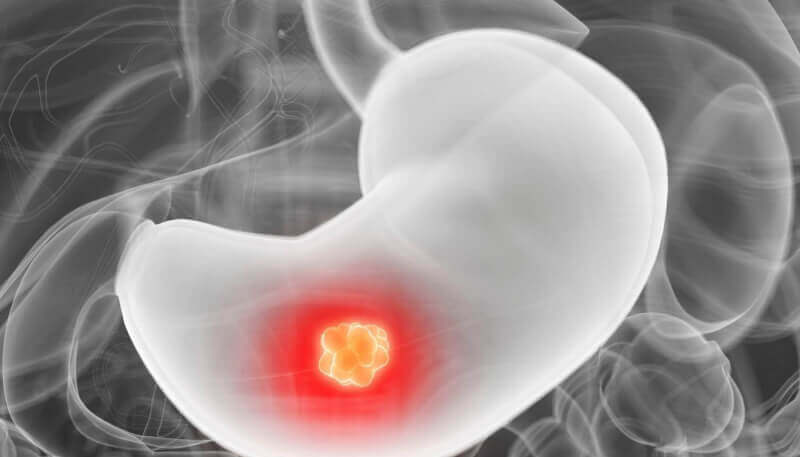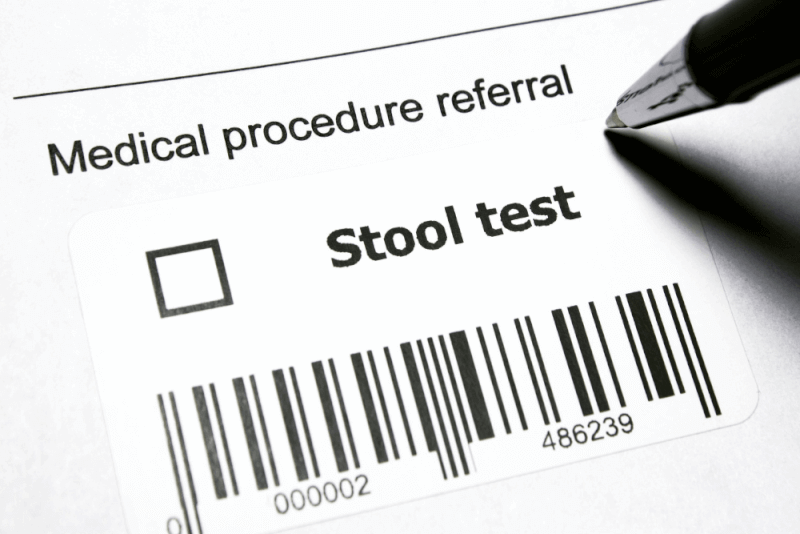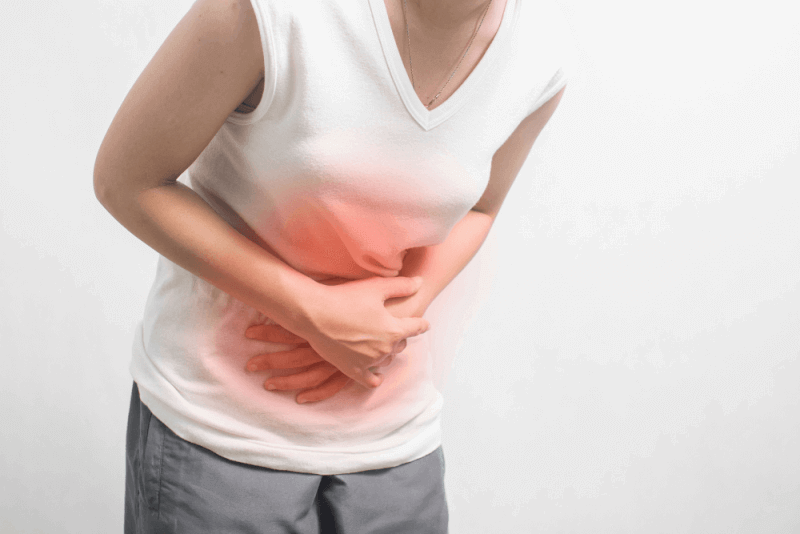30-Second Summary
- Stomach cancer occurs due to the uncontrolled growth and multiplication of cells on the stomach lining.
- The most common symptom is loss of appetite.
- Other symptoms include weight loss, difficulty swallowing, nausea, vomiting, bloody stools, and vomiting blood.
- Treatment for stomach cancer includes surgery, chemotherapy, and radiotherapy.
Stomach Cancer
Cancer is one of the most challenging and deadly diseases of our time, and stomach cancer is among the most difficult types to treat. Stomach cancer can occur in anyone, regardless of genetic factors, gender, age, or socioeconomic status.
Stomach cancer is defined as an oncological disease resulting from the uncontrolled growth and proliferation of cells on the stomach lining. This type of cancer typically occurs at the junction of the esophagus and stomach or within the body of the stomach.
Types of Stomach Cancer
Stomach cancer manifests as a tumor, and its types vary depending on the location of the tumor. These types can be briefly reviewed based on their location in the stomach.
- Adenocarcinoma is the most common type, accounting for approximately 90% of stomach cancer cases. The tumor primarily develops in the stomach mucosa.
- Lymphoma, although a general cancer type, can also appear as gastric lymphoma. It is rare and may develop within the stomach wall.
- Carcinoid tumors are found in the cells responsible for hormone production in the stomach. These tumors generally have a low risk of spreading to other organs.
- Gastrointestinal stromal tumors (GISTs) are rare tumors that originate from the interstitial cells of Cajal in the stomach wall. Some of these tumors are benign and not cancerous, although they are most commonly found within the stomach's interior.
- Other rare types of stomach cancer, including squamous cell carcinoma, leiomyosarcoma, and other cancers similar to adenocarcinoma, can also originate in the stomach.
How is Stomach Cancer Diagnosed?
Diagnosing stomach cancer in its early stages is challenging. Initially, a physical examination is conducted to check for any abnormalities. A blood test may be performed to detect the presence of Helicobacter Pylori bacteria.
Gastrointestinal endoscopy, also known as gastroscopy, is another diagnostic method. A thin tube with a small camera is inserted through the throat into the stomach. This procedure, performed under medical supervision, examines all layers of the stomach, including the mucosal layer. Suspicious areas are biopsied to obtain tissue samples for accurate diagnosis.
In addition to endoscopy, CT scans can be used to detect advanced stages of the disease. Laparoscopy, another diagnostic method, is useful before surgical intervention. In advanced stages of stomach cancer, imaging techniques such as CT scans, ultrasound, and MRI are employed to determine whether the cancer has spread to other organs and metastasized.
Risk Factors for Stomach Cancer
While genetic factors play a significant role in the development of stomach cancer, environmental factors and certain precursor conditions also contribute to its occurrence. Many studies have shown that stomach cancer can develop sporadically, but about 10% of cases are associated with familial transmission.
The presence of Helicobacter Pylori, poor diet, and genetic predisposition are key risk factors for stomach cancer. Professions such as coal mining, asbestos handling, and the petrochemical industry are considered high-risk occupations.
Patients who have undergone surgery or treatment for previous stomach issues may develop excessive bile and pancreatic secretions, leading to an increased risk of stomach cancer in the future.
Other significant risk factors include long-term smoking, excessive alcohol consumption, being over 50 years old, consuming a diet high in fats, spices, and salty foods, obesity, and pernicious anemia.
Symptoms of Stomach Cancer
From the onset of the disease, patients may experience nutritional imbalances, leading to rapid weight loss. Common symptoms of stomach cancer include:
- Sudden loss of appetite
- Difficulty swallowing and a sensation of food getting stuck, especially if the cancerous tissues are located in the upper part of the stomach
- A feeling of fullness, bloating, and frequent belching, particularly in the esophagus
- Frequent nausea and vomiting if the cancerous tissues are located in the lower part of the stomach
Advanced Symptoms of Stomach Cancer
In the advanced stages of stomach cancer, common symptoms include bloody stools and vomiting blood.
Stages of Stomach Cancer
Once stomach cancer is diagnosed, the disease is classified into stages to assess its severity and guide treatment options. Each stage impacts the patient's survival rate differently. Briefly:
- In Stage 0, abnormal cells are detected in the stomach.
- In Stage 1, tumors have developed in the muscle layers of the stomach and nearby lymph nodes.
- In Stage 2, the cancer begins to spread beyond the stomach.
- In Stage 3, the cancer has spread beyond the main muscle layer of the stomach and may have reached at least seven or more lymph nodes.
- In Stage 4, the cancer has metastasized to multiple organs beyond the stomach, reaching its most advanced stage.
Treatment of Stomach Cancer
As with all cancers, treatment options for stomach cancer include surgery, radiotherapy, and chemotherapy. If appropriate, surgery is the first choice to avoid prolonged radiotherapy and chemotherapy.
In patients with stomach cancer in the first three stages, partial or complete removal of the stomach, along with the removal of lymph nodes, can lead to recovery through palliative surgery. Therefore, early detection of cancer is crucial. The cost of stomach cancer surgery may vary depending on the facility and the surgeon performing the procedure.
Chemotherapy is typically used to treat tumors too large to be removed surgically in advanced stages of stomach cancer. Once the tumor is reduced in size, surgery may be performed to achieve recovery. Radiotherapy is also routinely used to shrink the tumor and improve the patient's quality of life in advanced stages.
In recent years, targeted drug therapy has been introduced in medicine to treat stomach cancer. These drugs specifically target tumor cells, potentially accelerating recovery. Immunotherapy is another method that uses the immune system's cells to attack cancer cells, providing an alternative treatment option.
Post-Surgery Nutrition for Stomach Cancer Patients
After stomach cancer surgery, proper nutrition is essential. Following a gastrectomy, patients often experience early satiety, leading to insufficient calorie intake and subsequent complications. Since food passes directly from the esophagus to the intestines without being stored in the stomach, maintaining adequate nutrition can be challenging.
To avoid calorie deficiency after stomach cancer surgery, patients should eat small, frequent meals. Since the stomach's absorption of iron and vitamin B12 may be insufficient, these nutrients can be supplemented via injections.
Foods Beneficial for Stomach Cancer
Stomach cancer patients often face significant nutritional challenges. Due to the partial removal of the stomach or tumor-related obstruction, weight loss is common, leading to inadequate nutrient intake. However, certain foods contain free radicals and antioxidants that may help inhibit the growth of stomach cancer cells. Therefore, consuming a diet rich in these foods is crucial for supporting treatment.
Allium Vegetables
This group of vegetables contains compounds that may prevent cancer. They also contain compounds that reduce inflammation and slow the production of cancer cells. These vegetables include:
- Onion
- Garlic
- Shallots
- Leeks
Turmeric
Turmeric has long been known for its medicinal properties. It not only inhibits Helicobacter pylori, which is associated with stomach cancer, but also contains curcumin, a phytochemical that induces self-destruction in cancer cells. Therefore, patients are advised to include plenty of turmeric in their diet.
Vitamins C and E
These vitamins are known to neutralize free radicals in the body and strengthen the immune system. Vitamin C also prevents the production of nitrosamines, which are known to cause cancer, when there is no fat in the stomach. Foods rich in vitamin C include:
- Kiwi
- Orange
- Broccoli
- Bell pepper
- Dark green leafy vegetables
Foods rich in vitamin E include:
- Swiss chard
- Spinach
- Sunflower seeds
- Almonds
Mushrooms
Certain mushrooms, such as Maitake, Reishi, and Shiitake, naturally contain beta-glucan, a polysaccharide that supports the immune system in fighting cancer cells. These mushrooms are also rich in vitamins B2, C, and D.
Whole Grains
Consuming whole grains instead of refined grains promotes intestinal motility and stomach emptying, helping to maintain digestive health.
Selenium
Research has shown that selenium obtained through diet can help treat stomach cancer. Selenium's anti-cancer effects, along with its antioxidant properties, reduce DNA damage and neutralize excessive free radicals, protecting cells from harm. Selenium also strengthens the immune system and helps destroy cancer cells. Selenium-rich foods include:
- Brown rice
- Brazil nuts
- Pasta
Foods Stomach Cancer Patients Should Avoid
There are certain foods that stomach cancer patients should avoid in their diet. These include:
- Red and processed meats containing nitrate preservatives
- Salty foods
Fluid Accumulation in the Abdomen Due to Stomach Cancer
The peritoneum, a layer that covers the abdominal organs, protects them while producing a small amount of fluid to allow the organs to move freely. When fluid accumulates between the two layers of the peritoneum, it causes abdominal swelling. This fluid accumulation is known as ascites. While ascites can occur due to various cancers such as uterine, liver, or colon cancer, it can also be seen in stomach cancer patients. Causes of fluid accumulation in the abdomen due to stomach cancer include:
- Irritation of the abdominal wall by cancer cells, leading to increased fluid production
- Blockage of lymph nodes in the abdomen, preventing proper drainage of the fluid
- Cancer spreading to the liver, increasing pressure in nearby blood vessels and causing fluid leakage
- Insufficient protein production by the liver, causing fluid to leak from blood vessels into the abdominal cavity
Symptoms of fluid accumulation in the abdomen due to stomach cancer include:
- Tight-fitting clothing
- Feeling generally unwell
- Bloating
- Fatigue
- Abdominal pain
- Shortness of breath
- Back pain
- Frequent urination
- Difficulty sitting or moving comfortably
- Constipation
- Loss of appetite
- Indigestion
Signs of Impending Death from Stomach Cancer
In the final days of stomach cancer patients, the changes they experience vary. However, there are some common changes that may occur. These include:
Physical Changes
In the final days, the body begins to slow down all functions, a process that can last hours or days. As the body’s functions slow, patients may feel weaker and spend most of their time sleeping. Other physical changes that may occur in the final days of stomach cancer patients include:
- Prolonged periods of sleep
- Lack of response when attempting to wake them
- Difficulty swallowing
- Refusal to eat
- Refusal to drink
- Loss of bladder and bowel control
- Restless movements, as if in pain
- Changes in breathing patterns
- Noisy and irregular breathing
- Mouth breathing
- Rattling sounds during breathing
- Cold hands, arms, legs, and feet
- Pale skin
- Skin mottling or blotching
- Talking nonsensically
- Failure to recognize people around them
- Complete loss of consciousness
Emotional and Mental Changes
Psychological changes may also occur in stomach cancer patients nearing the end of life.
- Anxiety
- Fear
- Anger
- Desire to complete unfinished business















